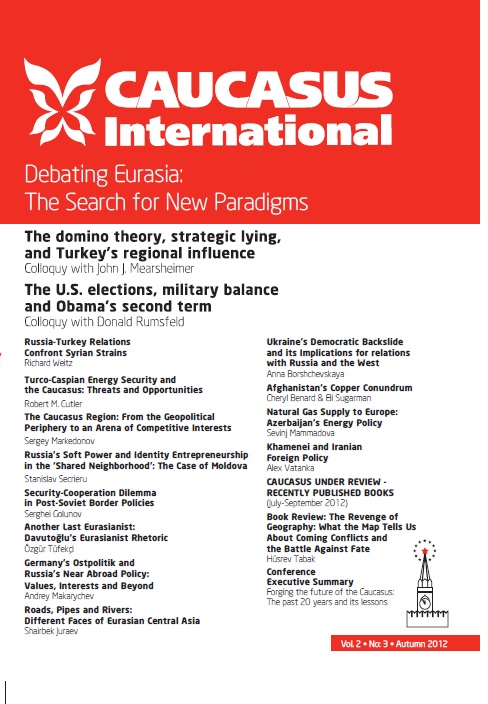Khamenei and Iranian Foreign Policy
Since the country’s turbulent June 2009 presidential elections, Iran’s foreign policy has further hardened. At the center of this process has been one man in particular, Iran’s Supreme Leader Ayatollah Ali Khamenei. The hawkish leader has pursued an uncompromising line toward the United States and in the (as yet) unyielding nuclear negotiations with the West. Moreover, Tehran’s regional policies have left behind an array of broken relations, from charges of interference in Bahrain and Azerbaijan to overt support for the brutal crackdown by the Syrian regime of Bashar Al Assad. Khamenei’s outlook toward the outside world appears unequivocal: the best path to foreign policy success is to be on the offense against adversaries and to act boldly. Needless to say, this modus operandi has many critics within the Iranian regime, but they are currently powerless to stop Khamenei and his faction from continuing the often adventurist policies in the region and beyond. The key question is whether Khamenei can remain on this path of defiance when the international sanctions are increasingly damaging the Iranian economy and further isolating the Iranian society from the world community. In recent weeks, there have been signs of new debate inside Iran about the need to reduce tensions with the rest of the world. Some leading personalities of the Islamic Republic have expressed sympathy for such lines of argument, but whether that pressure will force Khamenei to change course remains to be seen.
Latest news
- 03/17/2020 Call for Submission: “Non-Alignment Movement and Its Perspective in International Affairs”. Deadline: 1 July 2020 2624 views
Popular articles
- 02/24/2020 The Role of Irredentism in Russia’s Foreign Policy 2535 views
- 02/24/2020 Construction of sub-national identity vis-à-vis parent state: Gagauz case in Moldova 2218 views
- 02/24/2020 The Conflict in Ukraine - The Geopolitics of Separatism and Divergent Identities (Commentary) 2072 views
- 02/24/2020 The Role of the Soviet Past in Contemporary Georgia 2044 views





